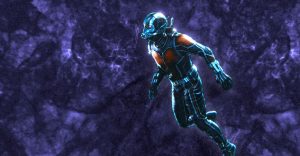Why Homer Replaced Bart As The Simpsons’ Main Character (& When)

Homer Simpson is now regarded as The Simpsons’ main character, but Bart was the original protagonist and was wisely replaced after a few seasons. Created by Matt Groening as a series of animated shorts for The Tracy Ullman Show in 1987, the iconic family then made their debut as a half-hour sitcom two years later. The Simpsons was a massive hit with critics and audiences, becoming America’s longest-running sitcom.
The Simpsons follows the beloved family’s misadventures in the fictional town of Springfield. Conceived as a satirical depiction of American life, the dysfunctional Simpsons were praised for seeming more real than the supposedly perfect families of traditional sitcoms. Despite the bizarre nature of the plots and characters’ many arguments, The Simpsons remains grounded by the family’s deep love for each other.
When The Simpsons began in 1989, delinquent Bart received the most attention, before Homer became the emotional core of the series. David Mirkin, who became the showrunner during season 5, told The New York Post why Homer replaced Bart as The Simpsons’ main character during this period. Mirkin explained, “We wanted to make it more emotional and bigger in scope.” Homer provided the best solution, as his position in the family meant a wider range of situations could be tailored around him, although writing the character properly was a tricky balancing act.

Mirkin joined the show during a “tumultuous time” of changing most of the original Simpsons writing staff, including Conan O’Brien. There was pressure to expand, leading to episodes involving outer space, India, and Australia. The first few seasons feature considerably more stories revolving around Bart’s troublemaking, but Homer receives increasingly more attention throughout seasons 3 and 4, eventually becoming the protagonist from season 5 onwards. On replacing Bart, Mirkin explained, “Bart, to write him accurately as a child, he can only have so much depth at a certain age.” Although Bart and Lisa sometimes receive stories that transcend their young age, The Simpsons can’t forget they are still children. Groening agreed with these limitations, telling Entertainment Weekly, “We wanted Bart to do anything up to the point of being tried in court as an adult.” The secret of The Simpsons‘ success and massive influence is not straying too far from reality, and Homer was an easier alternative. He is impulsive and often childlike, but still an adult with more room for emotional growth.
Homer provides a stronger link to Springfield’s residents, and his role as a parent and sole financial provider gives The Simpsons greater emotional stakes. As Groening stated, “There are far more drastic consequences to Homer’s stupidity.” His actions can fundamentally change people’s lives and are sometimes life-threatening, and his backstory with Marge and confronting his prejudices deepen the show in a more realistic way than if Bart remained the main character. Season 5 sees his relationship with Marge threatened by both Homer’s attraction to co-worker Mindy and spilling marital secrets while teaching a night class. Yet, Groening contends Homer’s “redemption is his love for Marge” and her attraction to him is equally important, rationalizing “if Marge can forgive him, so can we“. The key to writing Homer is understanding his loyalty and devotion to his family. His adult responsibilities mean he must believably function in this world.
Mirkin encapsulated why Homer is endearing when telling The New York Post, “He won’t necessarily understand how to open a door at some point, but he can name the Supreme Court Justices.” He is relatable because he reflects viewers’ imperfections, but later seasons have forgotten this. Homer’s stupidity now becomes extreme, and his self-centeredness prompted the label “Jerkass Homer”. Homer once provided the most heartfelt moments, quitting his dream job to support newborn Maggie and receiving a harrowingly short-lived reunion with his estranged mother. His numerous sacrifices made Homer perfect to replace Bart as The Simpsons‘ main character.
About The Author

















